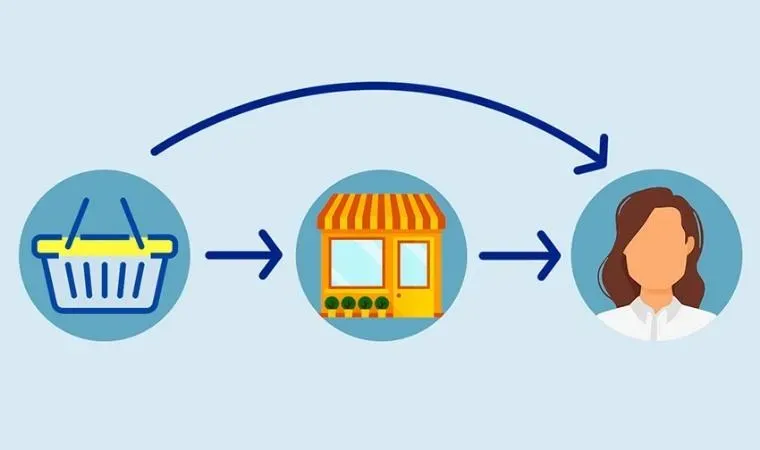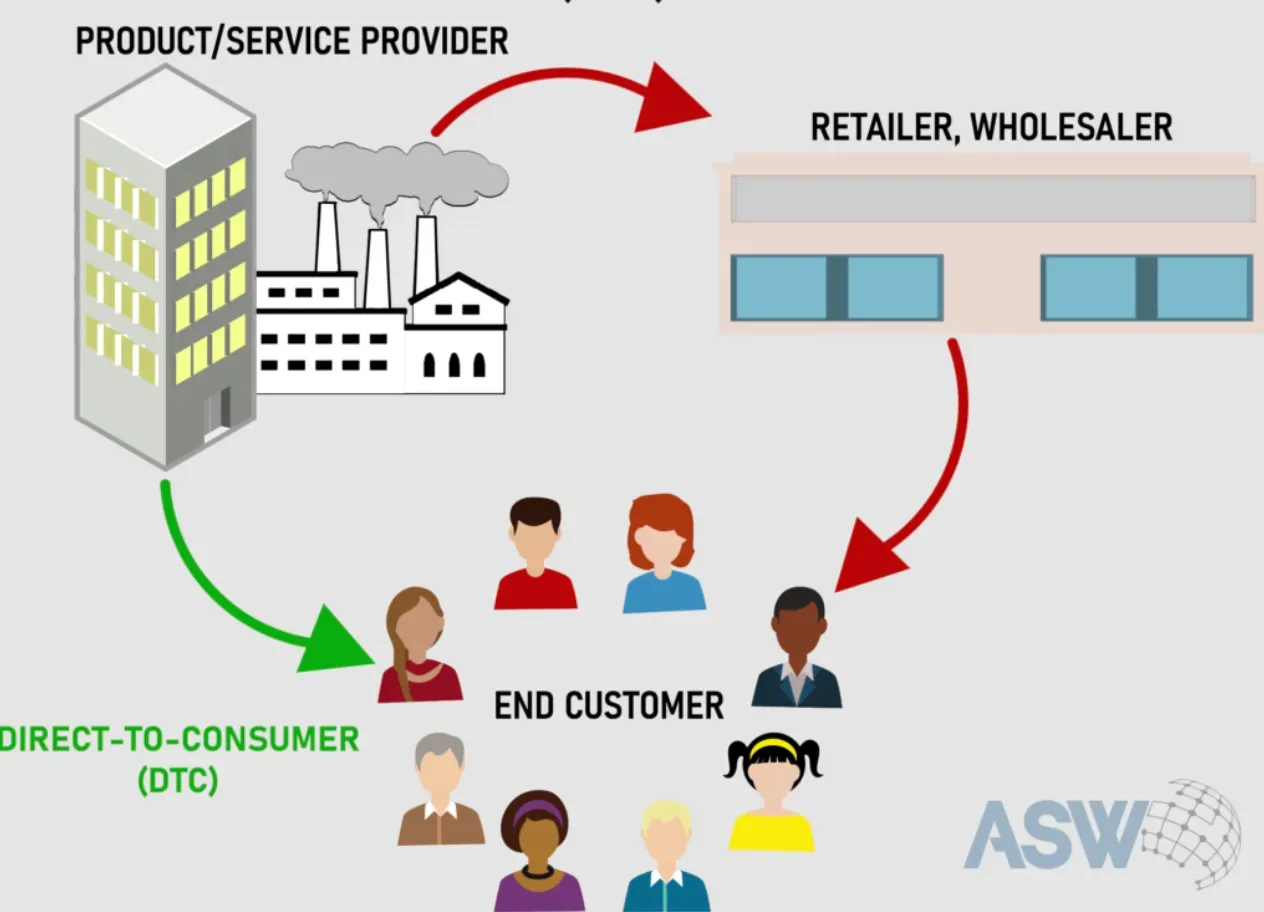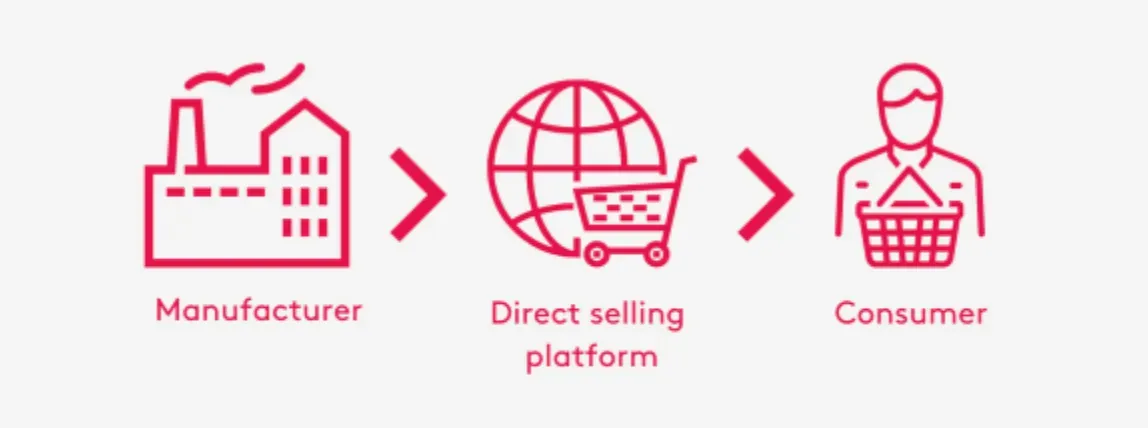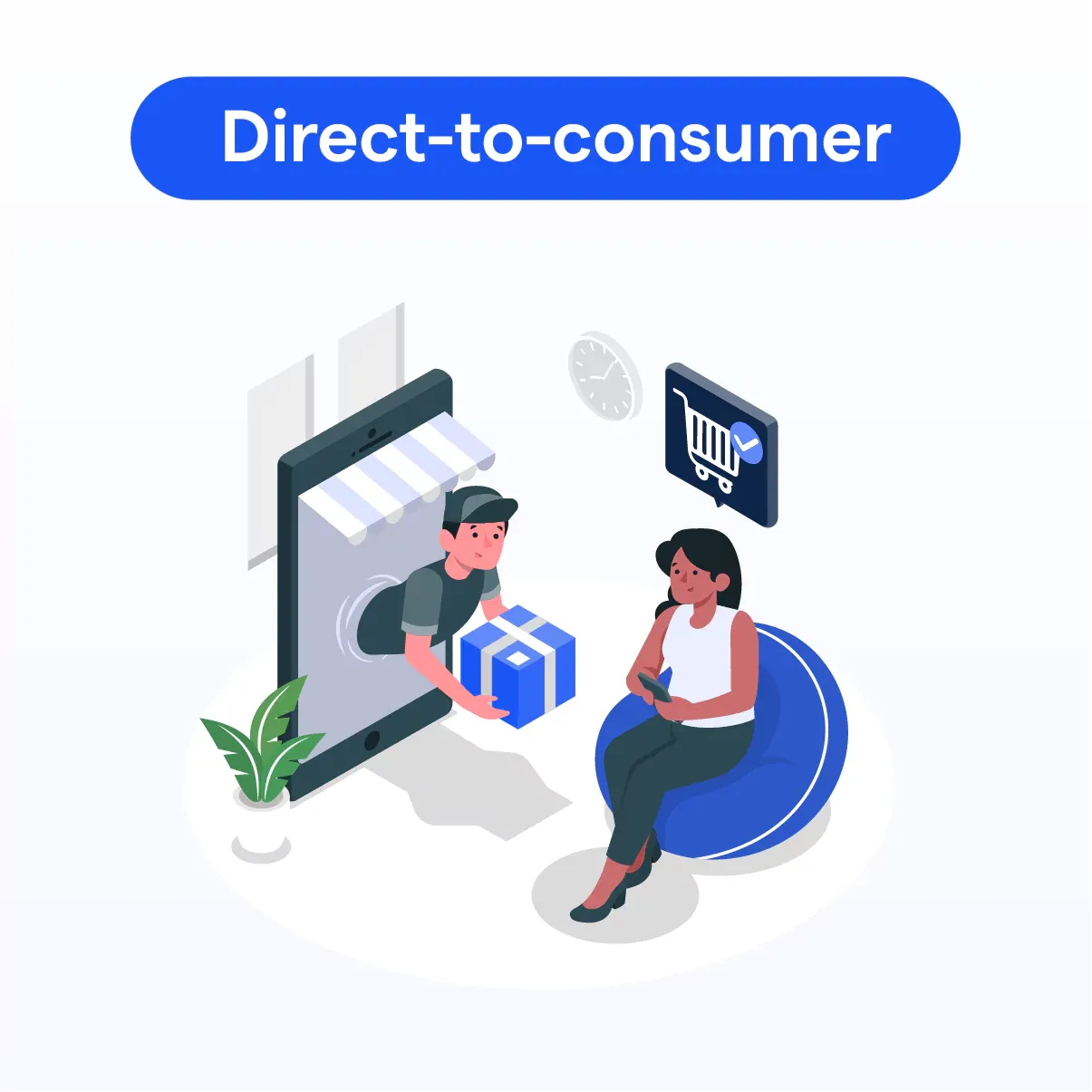What Direct-to-consumer?
At its core, DTC is about cutting out the 'middleman'. This means that products go straight from the production line to the customer's doorstep.
It's a lot like ordering a pizza directly from the pizza shop, rather than through a delivery app. This method can save costs and build a closer relationship between the brand and the customer.
Benefits of DTC
One of the top perks of going direct is that companies have full control over their brand, prices, and customer experience. They can also collect data directly from their customers to improve products and offer personalized services.
It's a bit like being able to tweak your pizza recipe based on direct feedback from the folks eating it.
Challenges in DTC
While selling straight to customers has its perks, it's not all smooth sailing. Building a brand from scratch and reaching customers directly through digital channels can require significant investment in marketing and logistics.
It's akin to opening your very own pizza shop in a town full of established chains; it takes effort to stand out!
Evolution of DTC
DTC isn't a new concept, but the internet has turbocharged its growth. Starting from catalog sales to leveraging the power of social media, DTC has morphed significantly over time.
Early Days and Catalog Sales
Long before the Internet, companies used catalogs to sell directly to consumers.
Customers could order products to be delivered to their homes, bypassing traditional stores. Think of it as the old-school version of scrolling through an online store.
Rise of E-commerce
The internet changed everything. Online stores allow for 24/7 shopping from anywhere, making it easier for brands to sell directly to consumers worldwide. It's like having a global pizza shop open all day, every day.
Social Media and Beyond
Social media platforms opened new avenues for DTC brands to engage directly with their customers, gather feedback, and even sell through these channels.
It's akin to sharing your pizza recipes on social media and taking orders right there in the comments.
Key Players in the Direct-to-consumers (DTC)
Some brands have pushed the boundaries of DTC, showing the world how it's done.

Industry Pioneers
Brands like Warby Parker and Dollar Shave Club are often hailed as pioneers of the DTC model, disrupting traditional industries with a focus on customer experience and innovative marketing strategies.
Rising Stars
Newer entrants like Glossier and Everlane have built fervent followings by leveraging social media and community-building. They've shown how a strong brand identity and values can attract a loyal customer base.
Tech Giants Entering the Arena
Even tech giants like Google and Apple are exploring DTC, selling their products directly through their websites and stores. They show that even established companies see value in connecting directly with consumers.
Marketing in a Direct-to-consumer
Marketing is crucial in the DTC model, as direct relationships with customers are at the core of this strategy.
Social Media Marketing
DTC brands often use social media to build a community around their products, using platforms like Instagram and Facebook to share stories, launch new products, and engage directly with customers.
Content Marketing
Creating valuable content that helps, informs, or entertains your audience can help a DTC brand build trust and loyalty. It's like offering free pizza-making classes to show customers the quality of your ingredients.
Email Marketing
Despite being one of the oldest online marketing tools, email remains a powerful way to communicate directly with customers, offering personalized offers and updates directly to their inboxes.
DTC and Customer Experience
In the world of DTC, the customer experience is king. Direct sales also mean direct feedback and the opportunity to wow your customers.

Personalization
DTC brands excel at personalization, using customer data to tailor products, recommendations, and communications to each individual's preferences.
Customer Service
Top-notch customer service is a hallmark of successful DTC brands, often leveraging social media and chatbots to provide instant support.
Community Building
Many DTC brands focus on building a community around their products, creating a sense of belonging and loyalty among their customers.
Logistics and Fulfillment in Direct-to-consumer
Delivering products directly to consumers requires a robust logistics and fulfillment strategy.
In-house vs. Third-party Logistics
DTC brands must decide whether to handle logistics in-house or partner with third-party providers to manage inventory and shipping. Each has its pros and cons, akin to deciding whether to deliver your pizzas yourself or hire a delivery service.
Shipping and Handling
Fast and reliable shipping is critical in keeping customers happy. DTC brands often offer various shipping options to accommodate customer needs.
Returns and Exchanges
A smooth process for returns and exchanges can help maintain customer trust and loyalty, turning potentially negative experiences into positive ones.
The Future of Direct-to-consumer
As we look ahead, the DTC model continues to evolve with technology and changing consumer preferences.

Innovations in Technology
From augmented reality (AR) experiences to AI-driven personalization, technology will continue to shape the future of DTC, offering new ways to engage customers.
Sustainability and Ethics
Consumers are increasingly conscious of the environmental and ethical implications of their purchases. DTC brands that prioritize sustainability and transparent practices are poised to succeed.
Global Expansion
The digital nature of DTC makes global expansion more accessible than ever. Brands that can navigate logistics and cultural nuances will tap into new markets and opportunities.
Frequently Asked Questions (FAQs)
What are the benefits of a Direct-to-Consumer (DTC) business model?
DTC allows businesses to control their brand narrative, pricing, and customer data. It often results in higher profit margins by eliminating the middleman and enables direct communication with the consumers.
How does DTC approach influence marketing strategies?
DTC approach necessitates direct engagement with consumers, influencing marketing to be more personalized, data-driven, and focused on building strong customer relationships.
Can traditional brands switch to a DTC model?
Yes, many traditional brands are exploring or have successfully transitioned to a DTC model as a way to gain higher control and improve margins.
How can technology support a DTC business model?
Technology, especially e-commerce platforms and social media, can facilitate online storefronts, customer engagement, data collection, and personalized marketing, supporting the DTC business model.
What are the customer expectations from a DTC model?
Customers expect personalized interactions, quality products, responsive service, and straightforward buying experiences from DTC brands. Regular engagement and building trust are essential.

